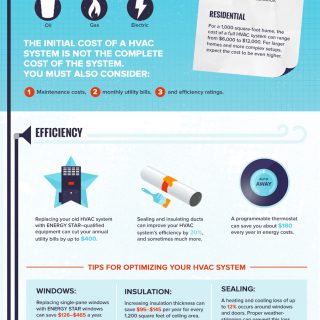Heatpump Vs Heater - Which Is The Better Home Heating Option For Your Home?
Heatpump Vs Heater - Which Is The Better Home Heating Option For Your Home?
Blog Article
Written By-Midtgaard Smith
Numerous homeowners know with heaters, which heat homes with oil or gas and push hot air via ductwork. They are relatively economical and can provide dependable heating even throughout a winter months power failure.
Nonetheless, they make use of fossil fuels and produce carbon monoxide and various other air contamination. They additionally aren't as energy-efficient as a high-efficiency heatpump.
Price
Usually, heatpump are much more budget friendly to run than furnaces. They typically make use of power and refrigerant to essence heat from outside air, and then transfer it into your home. You can make use of less expensive electricity prices during off-peak hours to even more lower your home heating costs.
Unlike heatpump, gas or wood-burning furnaces use combustion to generate heat, producing flue gases right into the ambience that can be damaging to your health. These heating systems are likewise much less energy-efficient than heatpump, and their greater operating expense can accumulate in time.
Heaters are extra difficult than heat pumps and require regular upkeep to make certain the proper function of all parts. Despite this, they have a tendency to last longer than heat pumps with a normal life expectancy of twenty years or even more. However, you'll require to consider the cost of gas, fuel oil or timber and the added devices required for setup and operation such as ducts and air flow systems.
Energy Efficiency
Heatpump have a higher energy performance score than heaters. These systems use electrical energy to feed on warm from the air, also in freezing temperatures. They can likewise eliminate excess warmth from the home during warmer months and recycle it to cool down the system. Provider professionals can aid you establish the most effective model for your home based on environment and resource power costs.
Heaters melt gas oil, lp, natural gas or other kinds of fossil fuel to heat the air in the home. which is the best heat pump in nz is then distributed through ductwork utilizing a big follower. Heating systems generate greenhouse gases and need normal maintenance and equipment upgrades to make sure safe operation.
The most significant benefit of a heater is that it can be operated also in harsh winter conditions since it does not count on exterior temperatures to warm up the air. Heating systems also have a longer lifespan than heatpump and commonly last 15 years. They can additionally be paired with twin fuel alternatives, which choose the most reliable home heating alternative based on the weather condition.
Environment
Heatpump work well in moderate climates and utilize less resource power than heating systems. However, if your area is remarkably cool, you might need to buy a standard gas heater instead.
Furnaces supply cozy, comfortable warm and typically use quick home heating to increase indoor temperatures. These systems can be utilized with a variety of gas types, consisting of natural gas, propane, oil or power.
They take in more power than heat pumps-- up to 3x as much-- and call for ductwork that's costly to install or retrofit. They're additionally extra expensive to preserve, as they can cause air top quality issues and produce greenhouse gas exhausts.
If you're committed to reducing your carbon impact, a heat pump is a great option for your home. heating ventilation and air conditioning have fewer greenhouse gas exhausts than heaters, particularly if you select a power STAR ® heat pump. Your local Provider specialist can clarify the distinctions in between these two heater and help you make the most effective decision for your one-of-a-kind needs.
Personal Preferences
Heaters can be extremely power effective when powered by natural gas, propane or oil, however they aren't as energy effective as heat pumps in icy environments. They can likewise be more pricey to install, requiring gas lines and air flow systems.
Nevertheless, heating systems have a tendency to call for less upkeep, which can cause reduced ongoing costs. They generate fewer greenhouse gases and are a lot more trusted than heatpump throughout extreme weather.
Electric heat pumps are extra functional in producing indoor convenience since they can likewise work as ac system throughout warmer months. They can be more convenient to maintain, calling for just regular air filter modifications and periodic vacuuming.
If https://residential-and-commercia28406.tkzblog.com/29202625/are-heat-pumps-the-most-effective-cooling-and-heating-option-for-your-home-a-relative-analysis choose the ease of a single system that does it all, think about a crossbreed heating option that sets a heater with an electrical heat pump. https://choosing-the-right-hvac-c28146.blazingblog.com/29386814/exploring-the-environmental-advantages-of-heat-pumps-a-sustainable-home-heating-service can immediately switch in between both heating options based upon your home's needs and temperature conditions, optimizing efficiency and cost savings.